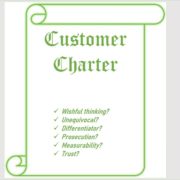The Great Debate (3) – What B2B and B2C can learn from each other?
Our June Customer Management Great Debate was held at the glorious Queen’s House in Greenwich, London, followed by a guided tour of the inspirational Cutty Sark, the world’s most famous merchant sailing ship.

We had an excellent assembly of people. They represented blue-chip B2B and B2C brands;. All were passionate about improving customer experience. I’d like to thank our excellent speakers Ian Bray (Fullers), Angela Marshall (De La Rue) and Marcus Kramer (Brand Affairs). They were joined for the debate session by Professor Merlin Stone (our new Customer Attuned director).
The debate identified the following learning points:
What B2C can learn from B2B
- Rapport. B2B is strong in relationship building and developing personal connections with customers. B2C can also build rapport with customers (especially high value ones), using connected behavioural and attitudinal data
- Influencers. Account management teams in B2B recognise the vital importance of engaging with the networks of stakeholders and influencers within their customers. Many B2C companies still struggle to incorporate social structures and networks in their data hierarchies (even obvious groupings such as households) and to recognise “networked promoters” within their customer bases
- Product Expertise. B2B often has technical specialists such as “Sales Engineers” or “Master Brewers” (in Fullers’ case), who are integral to the sales process and who REALLY know their product. This is rarely true in B2C, where product specialists are more commonly deployed in aftersales/service situations, often shielded by generalist enquiry management staff
- Resourcing. B2B can sometimes be better in directing its resources to high value customers via Key Account Management (KAM) teams than in many B2C markets where a ‘one size fits all’ approach is common
- Contract Recovery. When a B2B company gets feedback indicating dissatisfaction or poor relationship quality (e.g. from a Deep-Insight assessment), it is clear that there is a limited time to recover the relationship before the contract is re-tendered. This type of information is often fragmented and therefore deployed poorly in B2C because of silos in the organisation or because feedback is derived from anonymous research, preventing personal response
What B2B can learn from B2C
- Speed. B2C is increasingly ‘instant’ / real-time. Corporate agility, responsiveness, listening and speed of delivery are high on the agenda. Many service level agreements (SLAs) and contractual scope documents in B2B are way behind the expectations of customer-side staff , who are used to much quicker and better service in their personal lives (24/7 contact, SMS alerts, online chat, etc.)
- Empowerment. “CRM is becoming CMR (customer-managed relationships) in B2C”. Most B2B companies are behind in managing customer permissions and channel/media preferences and in recognising the importance of non-owned media (e.g. user forums, social media) and channels (e.g. aggregators)
- Social Engagement. While mass Facebook and Twitter engagement as used by consumer brands is not pertinent to B2B, this does not mean they can be ignored. B2B needs to appreciate the importance of engaging in the media that customers use. These are increasingly social e.g. LinkedIn, industry blogs, SlideShare, user forums
- Social Influence. The concept of ‘communities of interest’ (CoI) is well established in B2C. B2B companies should consider deeper engagement with CoIs (e.g. LinkedIn Groups) that either who directly use and endorse their products. Asking questions and listening to customer answers is as important as giving answers to customer questions.
- Social Listening. B2B companies should add value to their customers by finding “hidden truths” of insight, by digging deep into the rich content freely available online. B2B companies should use social listening techniques to track what is being said about the industry, market, sector and indeed their customers and share it with them in account meetings, thereby deepening levels of trust and interdependence.
- Introducing the Levels of B2B Trust - September 30, 2024
- Customer Attuned Newsletter explores 3 Ways to Improve B2B Relationships - May 20, 2024
- Season’s Greetings from Customer Attuned - December 7, 2023
